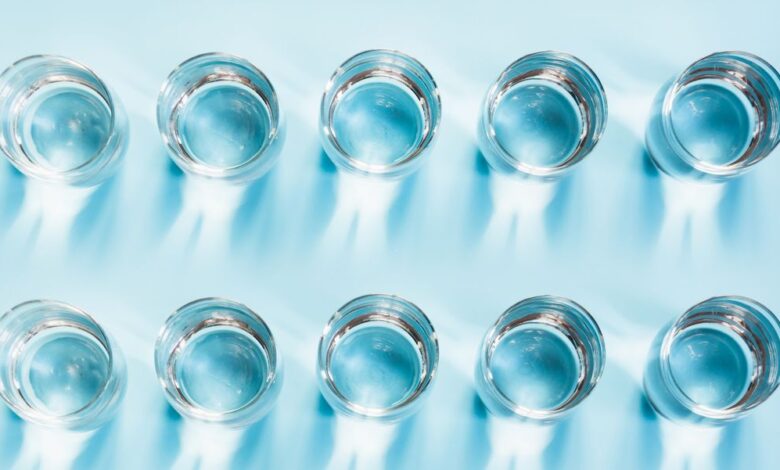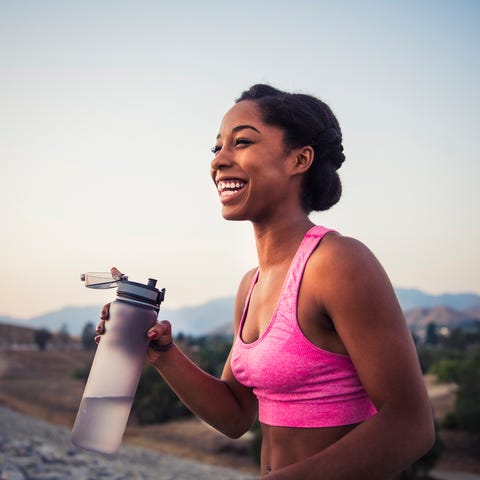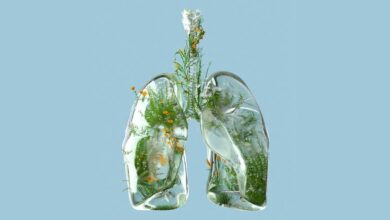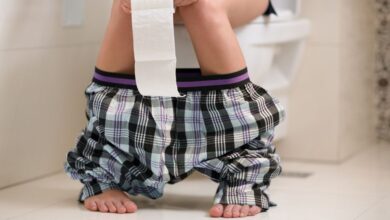How Much Water Should I Drink?

Water is the most underutilized tool when it comes to your health. From hydrating skin and helping with headaches to giving you an endless supply of energy, simply drinking enough H2O each day can pay off in a big way.
“Proper hydration is key not only to making sure we stay alert and energized, but also to keeping everything functioning in our bodies,” says Jaclyn London, MS, RD, CDN, Nutrition Director at Good Housekeeping Institute. “Most of us need to drink between 8-10 cups (as a general rule of thumb) of water per day — and much more when we factor in heat, sweat, medications, and humidity shifts.”
Yes, remembering to carry — much less sip on — a water bottle throughout the day can feel like a challenge, but drinking enough water is essential for your wellbeing. How much is enough? Well, much like calories, the amount of water each person needs depends on a few different factors. Read on to calculate how much water you should be drinking each day based on your own unique needs.
How much water should a woman drink?
Women should generally drink about 9 cups of fluids a day, while men should aim for 12, according to the Mayo Clinic. That’s 72 ounces — more than two Nalgenes’ worth — for us ladies. Where does that number come from?
“The guideline is loosely based on an equation that determines milliliter per calorie consumed per day, but even if you’re eating much more or far less daily, it’s a good barometer to think of 2,000 milliliters or 2 liters (about 8 cups) as a middle-ground benchmark,” London says.
How much water should you drink based on your weight?
If you want to determine the exact amount you should drink according to your body weight, you can follow these steps:
- Take your weight (in pounds) and divide that by 2.2.
- Multiply that number depending on your age: If you’re younger than 30, multiply by 40. If you’re between 30-55, multiply by 35. If you’re older than 55, multiply by 30.
- Divide that sum by 28.3.
- Your total is how many ounces of water you should drink each day. Divide that number by 8 to see your result in cups.
How much water should you drink based on your activity level?
This one’s a no-brainer: Anyone who works out on a regular basis should drink more water than someone who’s sedentary. Not upping your fluid intake to match your exercise schedule can lead to some unpleasant consequences, too.
“Dehydration can produce a number of different side effects, from feeling a little lethargic to plummeting blood pressure,” London says. “While everyone’s sweat rate is different, it’s safe to assume that for every 45 to 60 minutes of exercise you do, you’ll need to drink a minimum of 40 ounces of H2O — a number that will probably seem staggeringly high to some of you.”
So if you calculated you need at least 72 ounces of water per day based on your weight, that number should jump to 120 ounces (15 cups) or more if you’re doing an hour-long workout.
How much water should you drink a day in liters?
To convert your calculation from ounces to liters, follow this simple formula:
Number of Fluid Ounces ÷ 33.8 = Number of Liters
For example, if you’re aiming to drink at least 72 ounces or 9 cups of water per day, that’s the equivalent of 2.1 liters.
Is drinking a gallon of water a day bad for you?
Not necessarily. “It’s possible that you might need a gallon, depending on who you are, how many calories you consume per day, and your level of physical activity,” London says. (Pro and endurance athletes: This is you!) However, it’s also possible to drink too much water.
“It may induce hyponatremia — severely low blood levels of sodium — which can have severe neurological implications, among other side effects,” London explains.
Consult with your physician if you’re experiencing excessive thirst (which can indicate blood-sugar abnormalities) or feeling worried you’re drinking too much. Various diseases and medications can impact your hydrations needs. That said, hyponatremia is fairly uncommon, so don’t inadvertently dehydrate yourself.
“I’m more concerned that you’re not drinking enough versus overloading, so choose foods high in water content (veggies and fruits!) and drink unsweetened beverages like tea, coffee, and sparkling water regularly,” London adds. “Almost everyone I know isn’t drinking enough water and is likely ever-so-slightly sub-clinically dehydrated.”
How to Drink More Water
Drinking enough water may sound like a challenge, but making a few small changes can help you up your count. Try adopting these tips, as adapted from London’s book Dressing on the Side (and Other Diet Myths Debunked):
- Wake Up and Drink: Start your day with 16 ounces of water — right away. Keep a glass on your nightstand as a visual cue.
- Add Caffeinated Drinks: Unsweetened beverages such as coffee and tea “count” toward your goal. The USDA Dietary Guidelines recommends getting 300–400 mg per day — about 3–4 cups of coffee.
- Choose Sparkling Water: Seltzer and club soda will help you hydrate, too! Choose flavored or plain options, but skip brands with higher amounts of sodium, acesulfame-K, stevia, or sucralose. They can exacerbate bloating.
- Eat More Produce: Just one apple, for example, can pack up to 1⁄2 cup of H2O. Snack on extra veggies with salsa, add extra tomatoes to a salad, and get generous with your serving sizes of berries, citrus, melon, grapes, and other fruits.
- Put Fruit in Your Water: Frozen fruit works for this, too! It’ll supply flavor and deliver an extra hit of fiber.
Drink up, and get ready to feel better than ever with your brand-new, properly hydrated body.
This content is created and maintained by a third party, and imported onto this page to help users provide their email addresses. You may be able to find more information about this and similar content at piano.io
Source link






